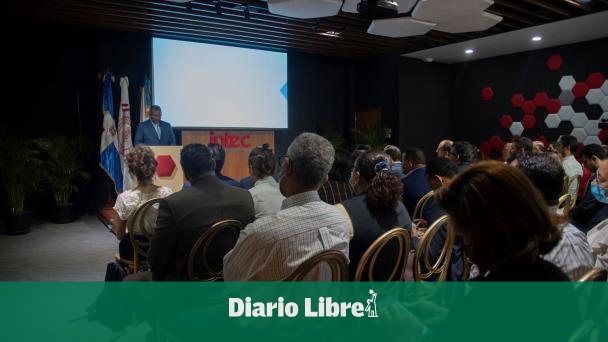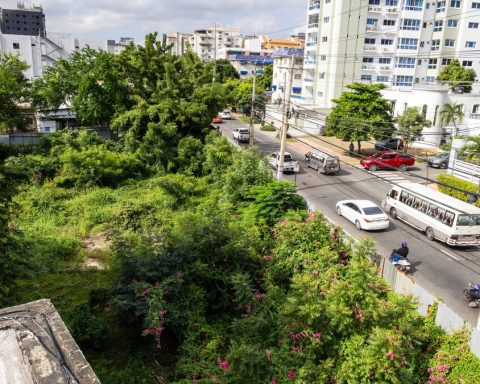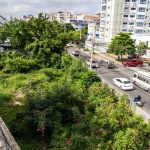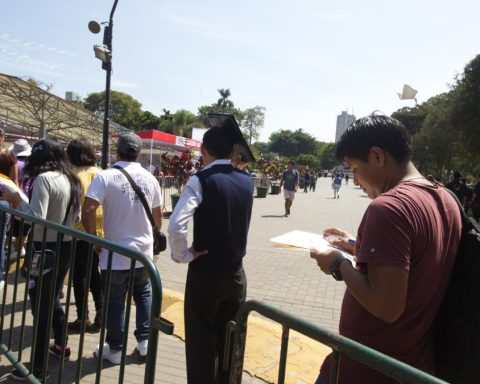Several institutions created the Mobility Observatory Sustainable Urban Development (OMUS) whose objectives include designing, generating, analyzing and sharing scientific data on the transportation and care for the environment.
The observatory has the support of the French Development Agency, which made a donation for its start-up. The opening ceremony was held in one of the halls of the Technological Institute of Santo Domingo (Intec) and the opening words were given by its rector, Julio Sánchez Maríñez.
The commissioning of the OMUS is due to the implementation of the Sustainable Urban Mobility Plan of Greater Santo Domingo, financed by the European Union and developed under the Mobilise Your City initiative, where the actions that must be carried out to achieve a system of mobility in which more attractive and sustainable cities can be counted on.
The mobility observatory It comes to comply with indicators of monitoring and measurement of variables, with a shared execution from central government institutions, as part of the implementation of public policy at the national level and coordination with the mayor’s offices.
Referring to the subject, the executive director of Intrant, Rafael Arias, said that “the creation of the observatory is due to the fact that the inputs required to develop the models or carry out specific mobility analyzes are scattered and without a shared objective of data that can have beneficiary partners to manage their tasks, whether of operation, planning or even research design”.
Arias reported that the need to have relevant information for mobility in the country has also been identified, such as the requirements that must be met so that the transportation public is inclusive and where women are taken into account for operations, which by culture is maintained as a task only for men.
“Hence the importance of having a Sustainable Urban Mobility Observatory, through which it will be possible to evaluate public mobility policies, including gender and emission reduction, and which will also serve for territorial planning and as an instrument for evaluating and monitoring of the SUMP as well as the ongoing reform of the sector transportation carried out by our Government with the accompaniment of the IDB and the AFD”, pointed out the head of the Intrant.
Arias stated that “we value the constant support of the Technological Institute of Santo Domingo (INTEC), in the promotion of research at the highest level and the strengthening of a scientific culture in the country, for the benefit of society, with attachment to innovation and the excellence”.
On her side, the director of the French Development Agency (AFD), Sandra Kassab, highlighted that “the Dominican Republic was the first country in the Caribbean to join the international initiative Mobilise Your City, led by the AFD with the support of the Union European.
He added: “With the accession of Santo Domingo in 2017, the elaboration of the Sustainable Urban Mobility Plan (PMUS) began, within the framework of which the creation of the mobility observatory that we inaugurate today was proposed. In these years we have witnessed the evolution of the SUMP and its success, due to its quality, the participatory nature of its development and the consensus of the competent parties to implement it”.
Meanwhile, the rector of the Technological Institute of Santo Domingo (INTEC) specified that the trust placed in the academy for the launch and participation in the OMUS is an honor for the university.
“Intec is a strategic ally of the State, the business sector and international organizations in sustainable development projects, and especially in urban mobility, which is not only a problem of mobility, but of environmental, socio-emotional quality of life. and economic for the entire urban population that represents more than 75% of our population”, he emphasized.
In the act held at the INTEC Social Security Observatory, with the participation of the public and private sectors, it was reported that, among issues that will be considered in the aforementioned observatory are mobility and social progress, mobility and land use, access universal, transportation non-motorized and urban impact, environmental pollution, sustainability and safety as part of the quality of service.
Similarly, the Intrant statement indicates that the research unit seeks to investigate the benefits of using other types of fuels and the implementation of non-motorized mobility as an alternative in favor of air quality.
Among the main functions proposed in the short term, the Mobility Observatory It has the role of evaluating and monitoring ongoing plans and programs, gender-related issues, strengthening capacities in mobility issues, quality of service and use of technology, to manage large databases, assess mobility surveys and update data. offer for updating the traveler information system.
Within the tasks established in the medium term, it will contribute to the national inventory of Greenhouse Gas (GHG) emissions for the sector transportationan environmental and social impact assessment framework will be formulated and as a mechanism for shared work and collaboration, it will be made available to entities and academies for inputs that support research.
In addition to the Intrant, the initial structure of the Mobility Observatory Sustainable Urbana is made up of the Ministries of Higher Education, Science and Technology; Economy, Planning and Development, Energy and Mines, Environment, Women, Public Health, as well as the National Council for Climate Change, the National Statistics Office, the National Network of Transportation Terrestrial, the General Directorate of Territorial Planning, the Alcaidías, OPRET, OMSA, the universities and private carriers.
In addition, they are part of the OMUS, the Trust of Transportation Massive (FITRAM), the Mobility Trust and Transportation Fimovit, and from now on, other organizations such as the National Police, Aupordom, among others, will be incorporated.
















